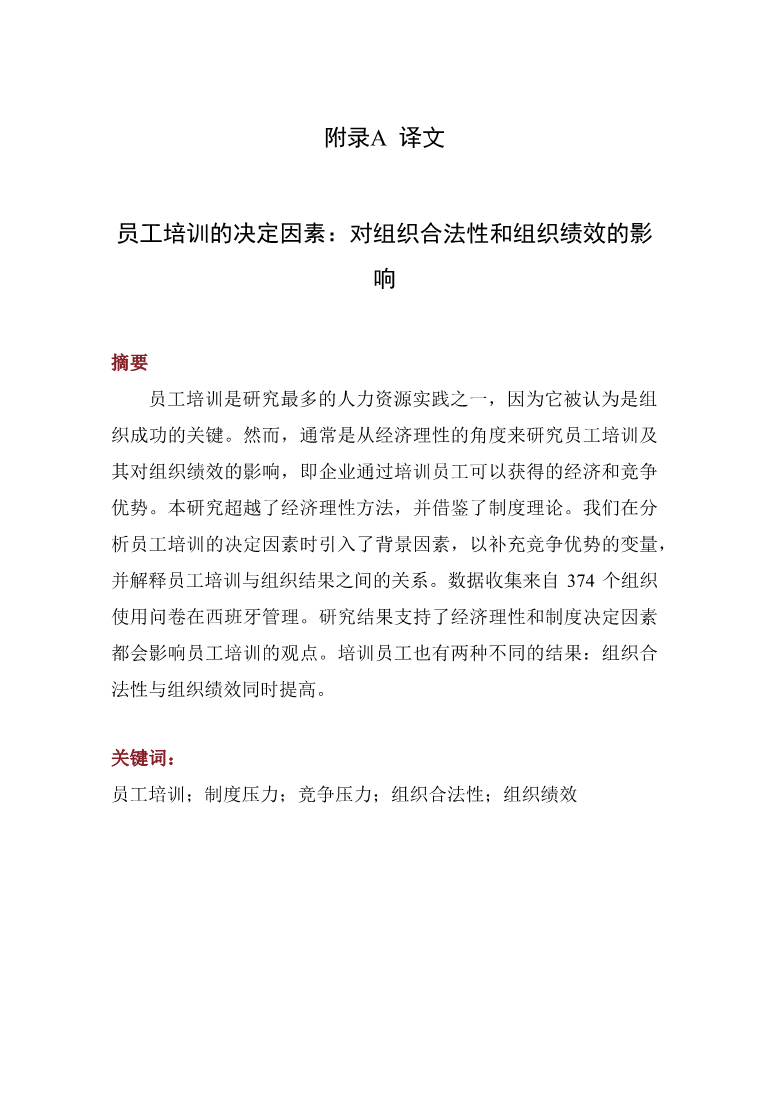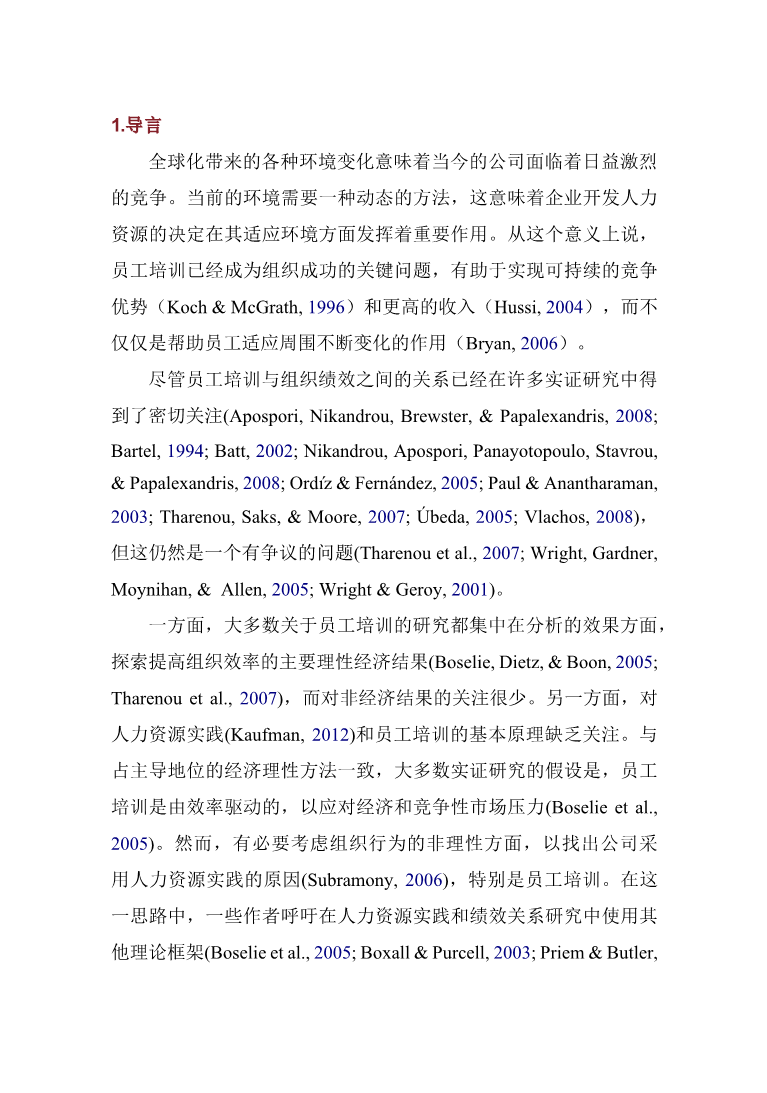员工培训的决定因素:对组织合法性和组织绩效的影响外文翻译资料
2023-04-17 21:15:42
附录B 外文原文
Determinants of employee training: impact on organizational legitimacy and organizational performance
Nuria N. Esteban-Lloret, Antonio Aragoacute;n-Saacute;nchez and Antonio Carrasco-Hernaacute;ndez
Management and Finance Department, University of Murcia, Murcia, Spain
Abstract
Employee training is one of the most studied human resource practices, as it is considered critical for organizational success. However, employee training and its impact on organizational performance have usually been studied from an economic- rational perspective, in terms of the economic and competitive advantages that companies can achieve by training employees. This study goes beyond the economic-rational approach and draws on institutional theory. We introduce contextual factors in the analysis of the determinants of employee training to complement the variables of competitive advantage and explain the relationship between employee training and organizational outcomes. Data were collected from 374 organizations using a questionnaire administered in Spain. The findings support the idea that both economic-rational and institutional determinants influence employee training. There are also two different kinds of outcome from training employees: organizational legitimacy improves at the same time as organizational performance.
Keywords
employee training; institutional pressures; competitive pressures; organizational legitimacy; organizational performance
1. Introduction
The diverse environmental changes resulting from globalization mean that nowadays companies face increasing competition. Current circumstances require a dynamic approach, and this implies that a firmrsquo;s decisions on developing human resources play an important role in its adaptation to its environment. In this sense, employee training has become a critical issue in the success of organizations, contributing to sustainable competitive advantage (Koch amp; McGrath, 1996) and greater income (Hussi, 2004), quite apart from its role in helping the workforce to adapt to the constant changes around them (Bryan, 2006).
Although the relationship between employee training and organizational performance has been looked at closely in many empirical studies (Apospori, Nikandrou, Brewster, amp; Papalexandris, 2008; Bartel, 1994; Batt, 2002; Nikandrou, Apospori, Panayotopoulo, Stavrou, amp; Papalexandris, 2008; Ordiacute;z amp; Fernaacute;ndez, 2005; Paul amp; Anantharaman, 2003; Tharenou, Saks, amp; Moore, 2007; Uacute;beda, 2005; Vlachos, 2008), it remains a controversial issue (Tharenou et al., 2007; Wright, Gardner, Moynihan, amp; Allen, 2005; Wright amp; Geroy, 2001).
On the one hand, most research on employee training focuses on the effect side of the analysis, exploring the main rational-economic outcomes that improve organizational efficiency (Boselie, Dietz, amp; Boon, 2005; Tharenou et al., 2007), while little attention has been paid to non-economic outcomes. On the other hand, there is a lack of attention to the rationales for human resource practices (Kaufman, 2012) and employee training. In line with the dominant economic- rational approach, the assumption that underpins most empirical studies is that of employee training is efficiency-driven, in response to economic and competitive market pressures (Boselie et al., 2005). However, it might be necessary to consider the non-rational side of organizational behavior to find the reasons for companies adopting human resource practices (Subramony, 2006), and employee training in particular. In this line of reasoning, some authors called for alternative theoretical frameworks in the study of human resource practices and performance relationship (Boselie et al., 2005; Boxall amp; Purcell, 2003; Priem amp; Butler, 2001) in order to overcome the weakness of the theoretical framing of this relationship. To this end, contextual factors are needed to understand why companies adopt HRM practices and their relationship with organizational outcomes (Boselie, 2009; Gooderham, Nordhaug, amp; Ringdal, 1999; Paauwe, 2004; Stavrou amp; Brewster, 2005).
Institutional theory provides a useful framework to fill this gap in the literature
on employee training, and to include non-economic outcomes and the rationale for employee training. Institutional theory explores different contexts and motivations for organizational behavior that go beyond the economic, including external social pressures. Organizations are embedded
剩余内容已隐藏,支付完成后下载完整资料


英语译文共 26 页,剩余内容已隐藏,支付完成后下载完整资料
资料编号:[588921],资料为PDF文档或Word文档,PDF文档可免费转换为Word




